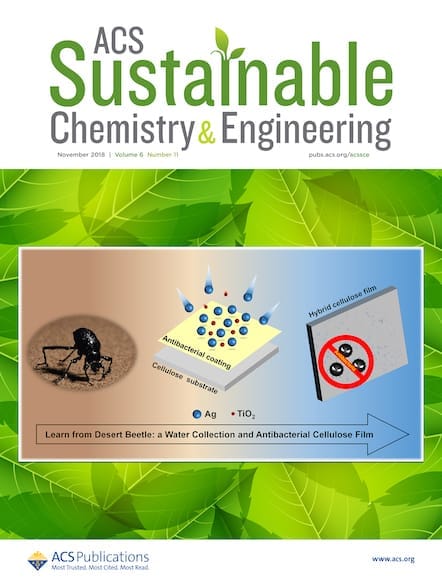The 9th Green Solvents Conference — GSC9 Advanced Reaction Media — is taking place September 23-26 in Titisee, Germany. It follows an introductory Green Solvents Workshop, an interactive course aimed at students and postdoctoral researchers. Since its foundation in 2002, the biennial Green Solvents Conference (GSC) has served as a unique platform for the discussion of scientific […]

The 9th Green Solvents Conference — GSC9 Advanced Reaction Media — is taking place September 23-26 in Titisee, Germany. It follows an introductory Green Solvents Workshop, an interactive course aimed at students and postdoctoral researchers.
Since its foundation in 2002, the biennial Green Solvents Conference (GSC) has served as a unique platform for the discussion of scientific progress and industrial implementation of advanced fluids for chemical syntheses and processes. This interdisciplinary meeting covered the development and applications of alternative solvents, including unconventionally used aqueous phases, ionic liquids, and supercritical fluids, as well as green organic solvents and soluble polymers. Other topics included solvent-free processes, as well as solvents for materials processing, phase-separable reagents, and various separation strategies.
In 2018, both academia and industry have internalized the need for green and sustainable solvents. With numerous practical challenges still to be tackled, we all have the 12 principles of green chemistry in our mind when developing a new process or reaction and this inspires discoveries. Consequently, the emphasis in the field has shifted: we have developed entire libraries of advanced liquid media, engineered at a molecular level to fit particular purposes. GSC9 – Advanced Reaction Media reflects a new and more representative name, combined with the proven concept of a successful series.
The GSC9 meeting aims to reflect the full breadth of this vitally important platform, as demonstrated by the exciting selection of invited speakers, recruited from the leaders of the field in industry and academia. The meeting will commence on Sunday, March 23, with a plenary lecture by the Father of Green Chemistry, Professor Paul Anastas. In a truly interdisciplinary spirit, the keynote lecturers will cover a broad range of solvents and applications, including nanoparticle growth in deep eutectic solvents (Edler), electro-reduction of N2 to ammonia in ionic liquids (MacFarlane), and Catalysis and organic chemistry in aqueous systems (Vogt and Lipshutz respectively). Finally, Hye Kyung Timken from Chevron Energy Technology Company will present the ISOALKY™ Technology; a green alkylate gasoline manufacturing process. In addition, invited speakers will discuss topics such as porous liquids and solventless synthesis via mechanochemistry (James), industrial catalysis with acidic ionic liquids (Chrobok), innovative approaches to lignocellulose conversion (Barta), sustainable trialkylgallium process developed by Umicore (Karch), and methane functionalisation in non-conventional reaction media (Perez).
We truly believe that such interdisciplinary meeting is an ideal forum to exchange innovative ideas, to critically discuss the current fundamental understanding, and to learn about some of the latest commercial applications in the field. In addition to keynote and invited lectures, oral contributions and posters are welcome. The abstract submission deadline is April 16. (http://dechema.de/en/GS92018_cfp.html).
Historically, the Green Solvents Conference meetings are held around water — the most important solvent — altering between locations on lakes, rivers, and the seaside. This year, a particularly beautiful venue has been selected, at Lake Titisee in the heart of Southwestern Germany’s Black Forest.
An introductory 2nd Green Solvents Workshop will precede the conference. This event offers students and postdoctoral researchers the possibility to acquire a broad background for the various approaches to advanced reaction media design. The course is interactive, combining basic lectures with real-world case studies, and offers a unique opportunity to interact with the leaders of the field, from both academia and industry. At GSC8, this proved popular with the students, providing a sound context to engage with the main meeting fully. Attendees should register early, as the number of participants is limited to 35.
Inspired by the conference theme,ACS Sustainable Chemistry & Engineering plans to publish a virtual special issue on ‘Advanced Reaction Media.’
Professor Małgorzata (Gosia) Swadźba-Kwaśny of Queen’s University Belfast is an ACS Sustainable Chemistry & Engineering Early Career Board member.
